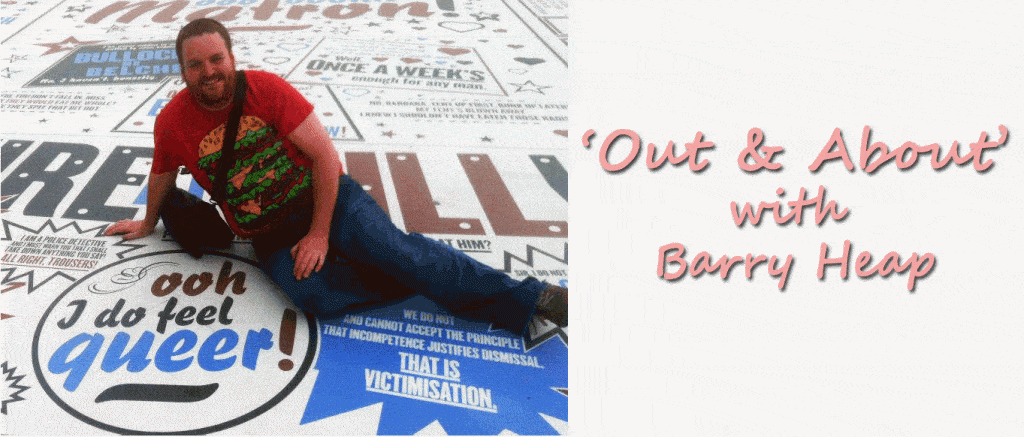Associate columnist and 'reporter at large' Barry Heap reminds us that having a unique personal identity is fine , however being catogorised and sterotyped for it is not.
Barry writes a regular 'agony aunt' column for the online magazine thegayuk.com
Stereotypes in counselling
So another festive period has come and passed, presents have been exchanged and unwrapped. The labels attached them have long been discarded and thrown away.
If only we were so lucky.
It seems like everybody has to wear a label these days, be it sexual identity, race or nationality. Part of the confusion over Tom Daley’s recent announcement that he was in a relationship with a man was the fact that he did not identify as either Gay or Bisexual. He acknowledged the attraction to his male partner but said that of course he still fancied girls. He only identified by saying “I’m still Tom”. He refused to put himself down under any category.
I remember as part of my counselling training, a peer had identified a client that she was working with as “African –American”. However they were as British as I was. She had later discussed with me she was uncomfortable with racial identities and it was her own blind spot. Indeed it can be murky waters, I have a friend who hates being checked against the box “mixed race”, and from her perspective she feels that she could be anything.
She is proud of both her black and Irish roots and embraces both. I even occasionally fall into the same traps myself, I identify as a man who is gay as opposed to a gay man. So what’s the difference some of you may ask?
Well if you call me a gay man you are prioritising my sexuality ahead of my gender, you are reducing me from being a man into something less. I am proud to be gay and have marched with a rainbow flag to support causes but it is not all of me.
There is even a double standard with labels, take a look over a newspaper ranting about “immigrants” coming over here and taking our jobs. However these articles coexist with the dreams and achievements of “expats” who have gone to other countries and successfully found work and a better life. It’s hard to tell the difference between the two.
But really to labels matter? They are a way for people to fit others into categories and concepts that we understand. Do you ever do this in practice?
I know early on when working with clients whose sexuality was more fluid I used to ask how they identified. This was part of me trying to empathise with them and view the world as they did. However as I became more confident in my client interactions I have left this behind.
If a client offers up a label, I will ask them to explain what this means to them and their interpretation of it. Labels have strength when a person can “belong” to an identity or community who identify as the same. It can help people to find a level of acceptance – both internally and externally- that may be lacking in other interactions.
If you see the label you lose the person.
The danger in assigning labels is that the person can get lost is there. Is the fact that I’m feeling deflated because I’ve been made redundant anything to do with me being Gay? Is my addiction due to the fact that I am Asian?
Is my disability the thing that is standing in the way of me forming successful relationships? Labels are external concepts that are applied to us; they have as much power as you want to give them.
If you want to call me a gay man you can, but that is your view of me. It is not me.
(To answer the obvious question, you know, the one about the “Label “‘Out and About’ that appears above Barry’s posts. Barry and I had a long conversation on the subject of a contributor’s sexuality forming part of their ‘profile’.
The outcome, as Barry so eloquently states is that societal agents of change sometimes need the ‘power’ of a label.- Rory )
Have you ever been labelled by a therapist or in training ? , Please share your experiences in the comments section.
